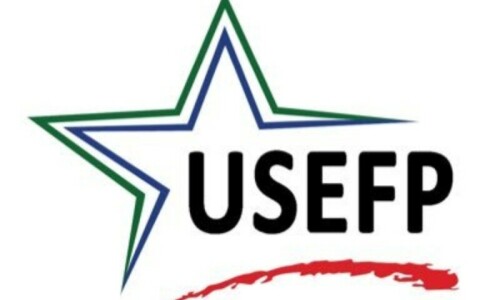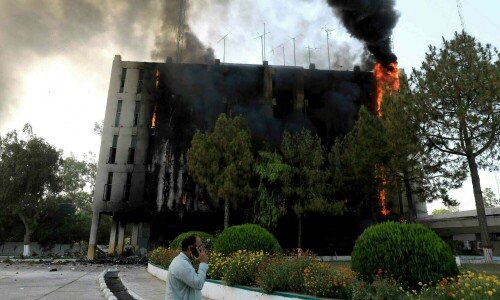Sindh Chief Minister Murad Ali Shah on Friday said that neither the federal government nor the International Monetary Fund (IMF) had expressed concerns regarding the National Finance Commission (NFC) Award.
According to Article 160 of the Constitution, the NFC Award is the allocation of revenues between the federation and the provinces “through an Order (the NFC Award), on the recommendation of the National Finance Commission.
Speaking to the media after the launch of World Bank’s Pakistan Development Update (PDU) report for October, the chief minister said that while the Sindh government had reservations about some matters, he was engaged in discussions to resolve them with the federal government, adding that “the PPP would only support measures that are in the interest of the country”.
In October, the chief minister had said that the Sindh government agreed to the National Fiscal Pact in order to fulfil conditions set by the IMF for finalising the $7 billion Extended Fund Facility for Pakistan.
The IMF has laid out approving a National Fiscal Pact as one of its key conditions to act as a structural benchmark in addressing the mismatch of federal and provincial revenues and expenditures.
The Sindh CM had also confirmed that the Finance Minister Muhammad Aurangzeb had assured him that all concerns expressed by the Sindh government over certain provisions of the National Finance Pact (NFP) would be addressed.
Regarding reservations about the proposed abolition of agriculture support prices and equal agriculture income tax in the four provinces under the NFP, the chief minister had said that the provincial government forwarded its reservations on certain conditions of the pact in writing to the federal government.
During today’s conversation, when asked about the federal government’s decision to prematurely terminate contracts with five independent power producers (IPPs), Murad said that he had learnt about the news from media reports and suggested that the government should take steps to utilise surplus electricity.
He proposed that the industrial units could be offered electricity at subsidised rates if they increased their production capacity by starting additional night shifts.
“This would help offset the capacity charges paid to the IPPs by the federal government, improve production, and create job opportunities for unemployed workers,” he said.
Shah mentioned that the federal government had started to implement the 18th Amendment by devolving or winding up some of its ministries.
‘Sindh govt committed to overcoming challenges’
Speaking at the launch of The World Bank’s editions of the South Asia Development Update (SADU) and Pakistan Development Update (PDU) for 2024, the chief minister said that the reports, provide critical insights into the economic challenges faced by Pakistan and the South Asian region, commending the reports for offering a roadmap for sustained growth.
The chief minister said that the devastating floods of 2022, which had submerged nearly 70 per cent of Sindh, caused extensive infrastructural damage, compounding the developmental issues, adding that his government remained committed to overcoming these challenges,
“We are committed to overcoming these obstacles, and the people of Sindh have shown their confidence in the government to serve and uplift them,” he said.
Talking about poverty alleviation, Shah said that his government responded to findings in the report, which underscored rising poverty during 2023.
“The Sindh government has taken several steps to support the most vulnerable segments of society,” he said, adding that the government’s Emergency Housing Reconstruction Project was a key initiative aimed at providing housing for over two million people whose homes were destroyed in the 2022 floods.
“This project, with a focus on climate resilience, is expected to drive socio-economic changes in rural areas,” he said.
CM Murad, while quoting the World Bank report which sheds light on the country’s circular debt in the power sector, said, “The Sindh government, in cooperation with federal agencies, has ramped up efforts to curb electricity theft and improve recovery operations.”
The CM said that the provincial government was actively addressing the lack of access to formal financial lending for the poor.
“The People’s Poverty Reduction Programme — a flagship initiative — is offering zero-interest loans to poor entrepreneurs,” he said, adding that the plans were underway to extend these efforts with assistance from international partners like the International Fund for Agriculture Development (IFAD) and the European Union and these programmes were aimed at supporting small and medium-sized enterprises (SMEs).
Despite the report’s concerns over increasing public sector borrowing, Shah reassured the attendees of the government’s fiscal discipline.
“While domestic borrowing has been authorised, the province has largely avoided it — instead boosting revenue through tax reforms,” he argued, while he also said that the government’s borrowing had largely come from international development partners at favourable rates, and they were aimed at rehabilitating flood-affected areas.














































